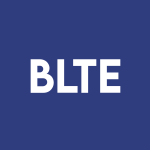Welcome to our dedicated page for Belite Bio news (Ticker: BLTE), a resource for investors and traders seeking the latest updates and insights on Belite Bio stock.
Belite Bio, Inc (NASDAQ: BLTE) is a clinical-stage drug development company focused on novel oral therapeutics for degenerative retinal diseases with significant unmet medical needs, including Stargardt disease type 1 (STGD1) and geographic atrophy (GA) in advanced dry age-related macular degeneration (AMD). The BLTE news feed highlights how the company advances its lead candidate, Tinlarebant, through late-stage clinical trials and global regulatory pathways.
Investors and observers following Belite Bio’s news can track updates on pivotal clinical programs such as the Phase 3 DRAGON and DRAGON II trials in adolescent STGD1 patients and the Phase 3 PHOENIX trial in GA. Company announcements cover milestones like completion of trial enrollment, last subject visits, and the release of topline efficacy and safety data, including the reported positive Phase 3 DRAGON results showing reduced lesion growth in STGD1.
The BLTE news stream also features information on regulatory interactions and designations for Tinlarebant, including Breakthrough Therapy, Fast Track, Rare Pediatric Disease, Orphan Drug, and Sakigake (Pioneer Drug) designations, as well as decisions by agencies such as China’s NMPA and the UK’s MHRA to accept applications based on interim Phase 3 data. In addition, readers can follow Belite Bio’s capital markets activities, including registered direct offerings, private placements, and underwritten public offerings of American Depositary Shares that the company describes as supporting clinical development and commercialization preparation.
By reviewing Belite Bio news, users can see how clinical data, regulatory developments, and financing events shape the company’s efforts to develop Tinlarebant as a potential oral treatment option for inherited and degenerative retinal diseases.
Belite Bio presented promising data on Tinlarebant, an oral tablet aimed at slowing disease progression in patients with retinal diseases at ARVO 2024. The Phase 2 trial showed a significant reduction in atrophic lesion growth in STGD1 patients compared to standard treatment. Enrollment for Phase 3 trials is complete, with interim data expected in Q4 2024.
Summary not available.
Summary not available.
Summary not available.
Summary not available.
Summary not available.
Summary not available.
Summary not available.
Summary not available.
Summary not available.

